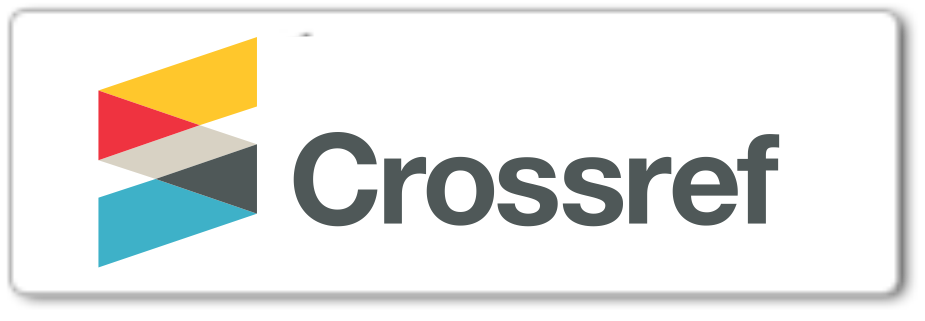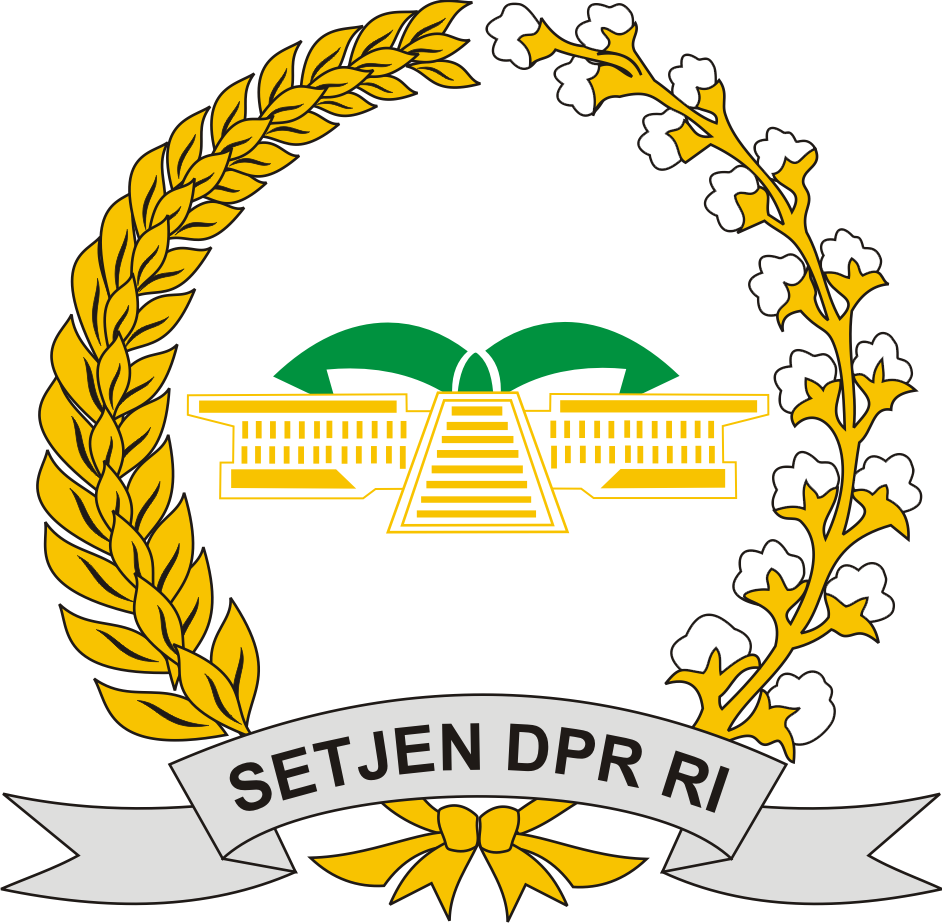Focus and Scope
Journal of the State of Law: Building Law for Justice and Welfare (JNH) is a Scientific Journal in the field of law published twice a year (June and November) by the Parliamentary Analysis Center of the Expertise Agency of the Secretariat General of the Indonesian House of Representatives. JNH is a forum for academics and legal practitioners to disseminate legal knowledge to the wider community in the field of legal references in legal journals covering various branches of Law in the Context of State Administration, Criminal, Economic, and Agrarian in Indonesia, Southeast Asia, and the Global context.
Section Policies
Articles
Peer Review Process
JNH is committed to making every effort to develop knowledge in the field of law, therefore JNH has a policy in accepting journal manuscripts, such as:
- JNH will not accept journals that are simultaneously sent to other journals.
- Journal manuscripts that are not in accordance with the discipline of law will not be followed up.
- The submitted manuscript is first reviewed by an editor. It will be evaluated in the office, whether it is suitable for JNH focus and scope or has a major methodological flaw and similarity score by using Turnitin or other plagiarism check, the minimum number and age of references that we require, template suitability.
- The manuscript will be sent to at least two anonymous reviewers (Double Blind Review). Reviewers' comments are then sent to the corresponding author by the editor for necessary actions and responses.
- The suggested decision will be evaluated in an editorial board meeting. Afterwards, the editor will send the final decision to the corresponding author.
- If the manuscript is not published, the Editorial Board will notify the author.
- All manuscripts submitted to the Editorial Board and reviewed by Review Partners are confidential.
Publication Frequency
The schedule of Negara Hukum publishes twice a year in June and November.
Open Access Policy
Negara Hukum provides immediate open access to its content on the principle that making research freely available to the public to support a greater global exchange of law field.
Archiving
This journal utilizes the LOCKSS system to create a distributed archiving system among participating libraries and permits those libraries to create permanent archives of the journal for purposes of preservation and restoration. More...
Publication Ethics
Publication Ethics and Malpractice Statement
JNH is a journal aims to be a leading peer-reviewed platform and an authoritative source of information. We publish original research papers, review articles and case studies focused on laws as well as related topics that has neither been published elsewhere in any language, nor is it under review for publication anywhere. This following statement clarifies ethical behavior of all parties involved in the act of publishing an article in this journal, including the author, the editor, the reviewer, and the publisher. This statement is based on COPE’s Best Practice Guidelines for Journal Editors.
Duties of Authors
- Reporting Standards: Authors should present an accurate account of the original research performed as well as an objective discussion of its significance. Researchers should present their results honestly and without fabrication, falsification or inappropriate data manipulation. A manuscript should contain sufficient detail and references to permit others to replicate the work. Fraudulent or knowingly inaccurate statements constitute unethical behaviour and are unacceptable. Manuscripts should follow the submission guidelines of the journal.
- Originality and Plagiarism: Authors must ensure that they have written entirely original work. The manuscript should not be submitted concurrently to more than one publication unless the editors have agreed to co-publication. Relevant previous work and publications, both by other researchers and the authors’ own, should be properly acknowledged and referenced. The primary literature should be cited where possible. Original wording taken directly from publications by other researchers should appear in quotation marks with the appropriate citations.
- Multiple, Redundant, or Concurrent Publications: Author should not, in general, submit the same manuscript to more than one journal concurrently. It is also expected that the author will not publish redundant manuscripts or manuscripts describing the same research in more than one journal. Submitting the same manuscript to more than one journal concurrently constitutes unethical publishing behaviour and is unacceptable. Multiple publications arising from a single research project should be clearly identified as such and the primary publication should be referenced
- Acknowledgement of Sources: Authors should acknowledge all sources of data used in the research and cite publications that have been influential in determining the nature of the reported work. Proper acknowledgement of the work of others must always be given.
- Authorship of the Paper: The authorship of research publications should accurately reflect individuals’ contributions to the work and its reporting. Authorship should be limited to those who have made a significant contribution to conception, design, execution or interpretation of the reported study. Others who have made significant contribution must be listed as co-authors. In cases where major contributors are listed as authors while those who made less substantial, or purely technical, contributions to the research or to the publication are listed in an acknowledgement section. Authors also ensure that all the authors have seen and agreed to the submitted version of the manuscript and their inclusion of names as co-authors.
- Disclosure and Conflicts of Interest: All authors should clearly disclose in their manuscript any financial or other substantive conflicts of interest that might be construed to influence the results or interpretation of their manuscript. All sources of financial support for the project should be disclosed.
- Fundamental Errors in Published Works: If the author discovers a significant error or inaccuracy in the submitted manuscript, then the author should promptly notify the journal editor or publisher and cooperate with the editor to retract or correct the paper.
- Hazards and Human or Animal Subjects: The author should clearly identify in the manuscript if the work involves chemicals, procedures or equipment that have any unusual hazards inherent in their use.
Duties of Editor
- Publication Decisions: Based on the review report of the editorial board, the editor can accept, reject, or request modifications to the manuscript. The validation of the work in question and its importance to researchers and readers must always drive such decisions. The editors may be guided by the policies of the journal's editorial board and constrained by such legal requirements as shall then be in force regarding libel, copyright infringement and plagiarism. The editors may confer with other editors or reviewers in making this decision. Editors have to take responsibility for everything they publish and should have procedures and policies in place to ensure the quality of the material they publish and maintain the integrity of the published record.
- Review of Manuscripts: Editor must ensure that each manuscript is initially evaluated by the editor for originality. The editor should organize and use peer review fairly and wisely. Editors should explain their peer review processes in the information for authors and also indicate which parts of the journal are peer-reviewed. The editor should use appropriate peer reviewers for papers that are considered for publication by selecting people with sufficient expertise and avoiding those with conflicts of interest.
- Fair Play: The editor must ensure that each manuscript received by the journal is reviewed for its intellectual content without regard to sex, gender, race, religion, citizenship, etc. of the authors. An important part of the responsibility to make fair and unbiased decisions is the upholding of the principle of editorial independence and integrity. Editors are in a powerful position by making decisions on publications, which makes it very important that this process is as fair and unbiased as possible.
- Confidentiality: The editor must ensure that information regarding manuscripts submitted by the authors is kept confidential. Editors should critically assess any potential breaches of data protection and patient confidentiality. This includes requiring properly informed consent for the actual research presented, consent for publication where applicable.
- Disclosure and Conflicts of Interest: The editor of the Journal will not use unpublished materials disclosed in a submitted manuscript for his own research without the written consent of the author. Editors should not be involved in decisions about papers in which they have a conflict of interest
Duties of Reviewers
- Confidentiality: Information regarding manuscripts submitted by authors should be kept confidential and be treated as privileged information. They must not be shown to or discussed with others except as authorized by the editor.
- Acknowledgement of Sources: Reviewers must ensure that authors have acknowledged all sources of data used in the research. Reviewers should identify relevant published work that has not been cited by the authors. Any statement that an observation, derivation, or argument had been previously reported should be accompanied by the relevant citation. The reviewers should notify the journal immediately if they come across any irregularities, have concerns about ethical aspects of the work, are aware of substantial similarity between the manuscript and a concurrent submission to another journal or a published article, or suspect that misconduct may have occurred during either the research or the writing and submission of the manuscript; reviewers should, however, keep their concerns confidential and not personally investigate further unless the journal asks for further information or advice.
- Standards of Objectivity: Review of submitted manuscripts must be done objectively and the reviewers should express their views clearly with supporting arguments. The reviewers should follow journals’ instructions on the specific feedback that is required of them and, unless there are good reasons not to. The reviewers should be constructive in their reviews and provide feedback that will help the authors to improve their manuscript. The reviewer should make clear which suggested additional investigations are essential to support claims made in the manuscript under consideration and which will just strengthen or extend the work
- Disclosure and Conflict of Interest: Privileged information or ideas obtained through peer review must be kept confidential and not used for personal advantage. Reviewers should not consider manuscripts in which they have conflicts of interest resulting from competitive, collaborative, or other relationships or connections with any of the authors, companies, or institutions connected to the papers. In the case of double-blind review, if they suspect the identity of the author(s) notify the journal if this knowledge raises any potential conflict of interest.
- Promptness: The reviewers should respond in a reasonable time-frame. The reviewers only agree to review a manuscript if they are fairly confident they can return a review within the proposed or mutually agreed time-frame, informing the journal promptly if they require an extension. In the event that a reviewer feels it is not possible for him/her to complete review of manuscript within stipulated time then this information must be communicated to the editor so that the manuscript could be sent to another reviewer.
Article Processing Charges
Every article submitted to JNH will not have any "Article Processing Charges". This includes peer-reviewing, editing, publishing, maintaining and archiving, and allows immediate access to the full text versions of the articles.



.png)
1.jpg)




.jpg)








